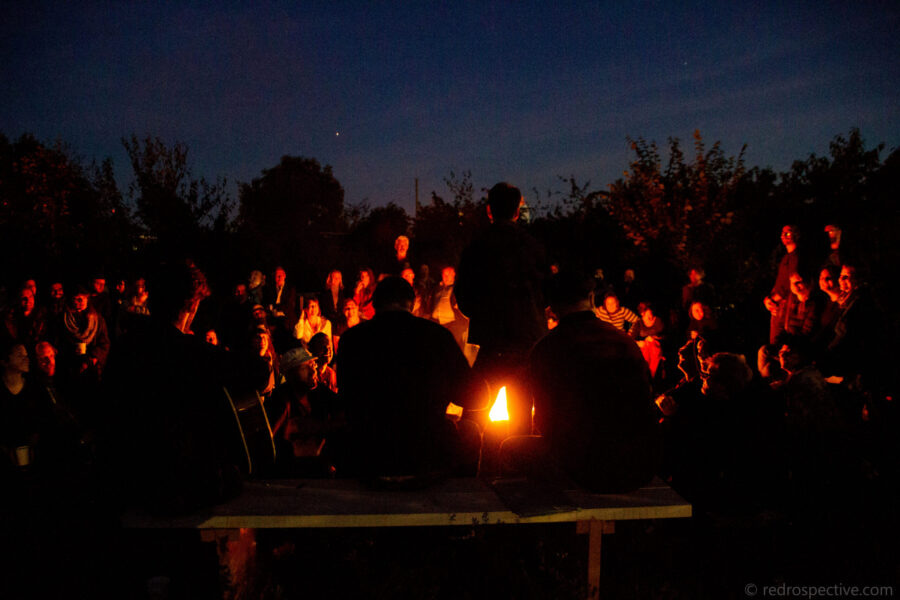Why the term 'Net Zero by 2050' is unhelpful
The urgency is real and this phrase makes communicating that harder
If you work or interact with the sustainability sector, chances are the two big numbers you know are 2050 and 2030. And why? To keep global warming to no more than 1.5°C – as called for in the Paris Agreement – emissions need to be reduced by 45% by 2030 and reach net zero by 2050. (Unless you’re Germany, who plans to reach Net Zero by 2045, because of course).
I started to think about the problems around using these dates this morning. It came when I was writing a speaking note – “if we are to achieve net zero by 2050, we must XYZ”. I put my metaphorical pen down and thought for a moment. In 2050, there’s a good chance I won’t be alive. I’ll be entering my 70th decade. The people I’m writing for and appealing to will be in their 90s or their graves.
Is there a risk of disassociation when our climate targets are so urgent, but can feel so far?
There are three reasons why I think the term Net Zero by 2050 could be improved.
What is Net Zero? When someone who does not work closely with sustainability hears the term Net Zero, does it necessarily feel like a positive, go-getting target? Not really. For one, zero rarely has positive connotations, so ‘achieving’ Net Zero sounds contradictory. Secondly, and I have argued and will argue this until I’m blue in the face - Net Zero negative, or net zero positive, or any combination of these terms – are alienating for so many. They conjure up equations and maths - it sounds technical and clinical. It does not sound like something you, a citizen, could contribute to simply by walking more and recycling your tins of beans.
Others, like Greta Thunberg, have called Net Zero out for embodying greenwashing. Once the world reaches Net Zero, will we really have a better planet? Or will there be a ‘credibility gap’, with companies desperate to avoid being sued buying trillions of offsets to achieve a figure that everyone knows is deeply optimistic anyway? Simply achieving Net Zero alone won’t save the planet.
2050: there is a saying in English. “Out of sight, out of mind.” Once you put your keys down on your bookcase, for whatever reason, those keys are now absent. You will not think about them until a set of replacement keys later when you go to pull a dusty book off the shelf and realise your error. I feel similarly about 2050 being a target. The further something away is, the easier it is to put it out of mind. This is why people panic buy Christmas gifts on Christmas Eve. We all know the 25th/2050 is coming, but it’s a long way off, right? We have time. Except we don’t. The world needs our attention today.
So what can we do about it?
These are my three issues with the term. I guess the fourth issue is that I have no power whatsoever to alter the term, but I can look at different ways of communicating it. In a panel at the Net Zero Festival 2022 last week, Professor David Halpern, CEO of the Behavioural Insights Team, along with Lorraine Whitmarsh, Professor of Environmental Psychology at Bath University, spoke about ways to reframe the crisis.
Reframe Net Zero as a positive outcome.
Rather than referring to Net Zero, use communications to talk about the benefits that will arise from having made changes. For example, children will have access to cleaner water, there’ll be fewer diseases, extinction rates will pause, and our major cities will be flood/drought free.
These are all tangible and significant outcomes of positive changes we can make over the next 30 years. It brings the goal forwards, and reframes it as a societal benefit – despite appearances, we humans are community minded and driven. Deep in our psyche, our ancestors communal drum beats and we know it makes sense to work together for our communities to thrive.
The other solution is to break down the timeline.
I’ve seen this happening in some instances, but until we round the peak and start seeing a fall in emissions, there’ll be few things to celebrate. There’s a reason in interviews candidates are asked where they’d like to be in 5 years and not 50 years. So let’s bring that timeline forward. If you’re communicating for an organisation or thinking about your company’s sustainability goals, think about what reductions you’d like to see in two years instead. What small, incremental steps can you make that actually have a big, tangible impact? Add five more years. Then ten. Then twelve. People will engage more with these targets that are positioned within their working lives. Report back, and report frequently.
It’s not easy, but it’s necessary
I don’t need to say it, but change isn’t easy. We like comfort and we like life as it’s always been. But people are dying now. People are losing their homes now. People are mass-migrating out of deserts now. Let’s reframe the conversation and showcase the urgency. It’s not tomorrow, it’s not in 30 years, it’s now. It’s today.
Some reading material I’ve enjoyed this week
An oldie but a goodie - Ofgem’s 2019 study on consumer behaviour around decarbonisation and Net Zero
Changing consumer behaviour to reach Net Zero, published in the BMJ
Behavioural Insights and Climate Change - an indepth exploration of everything you want to know about nudging people to change their mind
Subscribe to PR for the Planet here for more thoughts about sustainability communications


